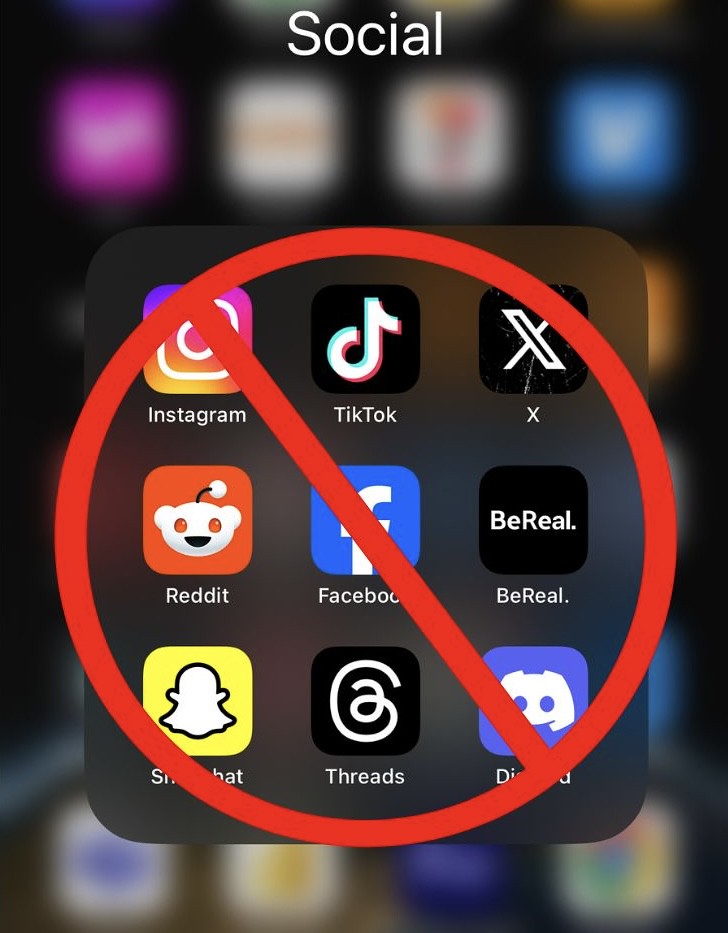


 4:55:20
4:55:20  2024-11-27
2024-11-27  1095
1095

The Australian government, in response to concerns over the online safety of young people, has announced it intends to explore banning social media for people under 16. It is not the only government to suggest such a ban. The European Union and United Kingdom have indicated they may explore such a possibility, and authoritarian regimes, such as Russia and Turkey, regularly implement temporary bans on social media. The French Education Minister has even proposed a sort of "stage theory" of allowable access: under 3, nobody should be exposed to screens; between 3 and 6, all screen access should be supervised by an adult; under 11, nobody should use a mobile device; and under 15, nobody should use social media. None of this is legislated, and the way in which the Australian initiative will be implemented is still subject to concerns and debate. However, the overriding question is this: Will it work to make younger people safer, happier, and healthier?
There is undeniable evidence that social media can do harm. It exposes the young to dangers that would otherwise be less immediately threatening to their safety. It can reduce their psychological well-being, as well as their health through impacts on sleep and exercise. Thus, in some respects, the answers to questions of prohibition are straightforward; even given the positives associated with digital communication, banning social media, like banning smoking or putting your fingers in a meat grinder, would improve safety, health, and happiness. Yet, there is always a concern when the word "ban" is used—it conjures many ethical and political concerns and brings to mind authoritarian, freedom-restricting regimes.
Naturally, digital companies do not like the idea of a social media ban for youngsters, and there have been protests from these corporate giants. Mostly, these protests, and the reasons they cite, can be seen for what they are—purely self-interested smoke screens. And, yet, no matter how attractive that particular spectacle may be for those who have long argued against the use of social media, there are still concerns about banning.
It is worth examining what is known about the impact of social media bans for younger people. A recent meta-analysis of the impacts of banning social media located five studies on the effects of such a ban for school children. This analysis suggested that smartphone bans had a modest, but statistically and practically important, positive impact on social well-being and did reduce issues such as bullying. There was also an improvement in academic behaviours, but this was much less pronounced. It is likely the latter aspect is impacted by many other factors than social media use, but the improvements in well-being are encouraging for those who want to prohibit social media or screen use for the young.
A more in-depth exploration of banning mobile devices from classrooms for high school-aged pupils noted that most students reported an increase in their ability to concentrate and felt their academic performance improved. This was ascribed to the removal of the temptation to constantly check their device, which was highly distracting. However, the students also reported that these beneficial effects were much more pronounced when the class or lecture was interesting, which distracted them from wanting to check their mobile device. When the material was dull, these benefits did not occur and perhaps even added to anxiousness about not having their phone.
Reality Of Islam |
|

Scientists

As AI-power

MXenes are

A newly dev
 9:3:43
9:3:43
 2018-11-05
2018-11-05
10 benefits of Marriage in Islam
 7:5:22
7:5:22
 2019-04-08
2019-04-08
benefits of reciting surat yunus, hud &
 9:45:7
9:45:7
 2018-12-24
2018-12-24
advantages & disadvantages of divorce
 11:35:12
11:35:12
 2018-06-10
2018-06-10
 6:0:51
6:0:51
 2018-10-16
2018-10-16
 9:42:16
9:42:16
 2022-10-19
2022-10-19
 8:25:12
8:25:12
 2022-03-09
2022-03-09
al-hussain (peace be upon him)
 10:18:1
10:18:1
 2022-09-21
2022-09-21
 8:3:0
8:3:0
 2018-06-21
2018-06-21
 10:43:56
10:43:56
 2022-06-22
2022-06-22
 2:42:26
2:42:26
 2023-02-02
2023-02-02
 7:34:7
7:34:7
 2023-02-28
2023-02-28
 5:41:46
5:41:46
 2023-03-18
2023-03-18
| LATEST |